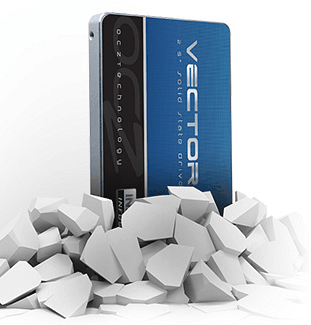.png)




There are many ways to upgrade your existing Laptop or Desktop to make it operate faster. Some upgrades are as easy as changing your RAM to a higher capacity. However the most notable performance increase is achieved by upgrading your existing hard drive to a Solid State Drive (SSD).
Here at MCR we can image (make an exact copy of your old Hard drive) and re image it to the new Solid State Drive*.
*If your system is running slow due to virus/malware/spyware/def. hardware we recommend to start with a clean installation of the Operating System and your programs, i.e. Office/Printer/Anti-Virus.
For more information just give us a call, our friendly staff will answer any further question you may have.




FASTER PERFORMANCE
SSD technology enables 100x greater throughput, quicker boot ups, faster file transfers, and overall snappier performance than hard drives.
MORE BANG FOR TEH BUCK
When considering performance per dollar, SSDs are more cost-effective than their mechanical counterparts.
GREAER DURABILITY
The non-mechanical design of NAND flash mounted to circuit boards is extremely durable, unlike HDDs and their rotating disks and seeking spindles.
ENERGERY EFICIENT
SSDs use significantly less power than hard drives, promoting a longer battery life in notebooks, less power consumption, and a greener computing environment.
SILENT OPERATION
With no moving parts, SSDs run virtually silent in your notebook or PC to eliminate distracting noise during gaming or entertainment.
The SSD Advantage

TECHNICAL INFORMATION
As mentioned above using an SSD can have a dramatic impact on the speed of a Computer. SSDs are comparable to flash/USB/Thumb Drives where all data is stored in microchips (NAND chips).
Physically, the SSD size is 2.5 inches – the same as your standard laptop hard drive. The number of advantages over traditional Hard Drives are outstanding, however the sheer amount of storage capacity of traditional hard drives eclipses SSDs. HDDs now reached the 8TB capacity with 10TB not far behind while SSDs are at 1TB (Please regard that these figures are for the consumer market).
Speed – Is the biggest single advantage. SSDs are typically 2-10 times quicker than a standard Hard Disk Drive (HDD). SSD read/write speeds vary from 200 MB/s to 500+ MB/s whereas the fastest HDD's will struggle to achieve and maintain 200MB/s.
What does that mean in practice? On a typical computer, startup and shut down times will be halved with an SSD.
E.g. if a laptop takes 40 seconds to boot into Windows and 10 seconds to shut down, replacing the HDD with an SSD could decrease those times to just 20 seconds and 5 seconds respectively.
The faster speeds of an SSD can also make launching applications extremely quick – even huge applications like Photoshop (that normally take up to 10 seconds) will open almost instantly. We love the comments from our customers who made the switch to an SSD; they often refer to program launch times being almost instantaneous – and that they would never go back to an "old" HDD.
Due to the decreased energy usage that SSD exhibit they could extend battery life by up to half an hour in laptop/netbook.
HDD's whirr, vibrate and click during operation often loud enough to hear. SSD's have no moving parts and therefore no vibration can be generated – just like a Flash Drive they are totally silent. As SSDs have no moving parts and use less power, they produce very little heat – HDDs can reach temperatures up to 50 C degrees.
Lower temperatures help keep the computer cool and protect electronic components from heat related damage (which leads to shortened lifespans).
Fans will also need to spin less quickly which results in less noise – fans are often the noisiest part of a computer.
SSDs can typically withstand a shock up to 1500G whereas standard drives can only take about 350G.
If you drop a standard laptop onto the floor there is a good chance of damaging (or reducing the life of) the hard drive – even running upstairs with the laptop switched on can damage it…
This is far less of an issue with an SSD – although not recommended, a major collision is more likely to damage the screen or casing than the SSD. If you want a rugged laptop with optimal protection for your data, an SSD is a much better option.
In practice, many laptop HDDs are failing after just a couple of years if the laptop has lived a hard life on the road – the better Shock Resistance (described above) means SSDs are more likely to outlast HDDs in laptops.